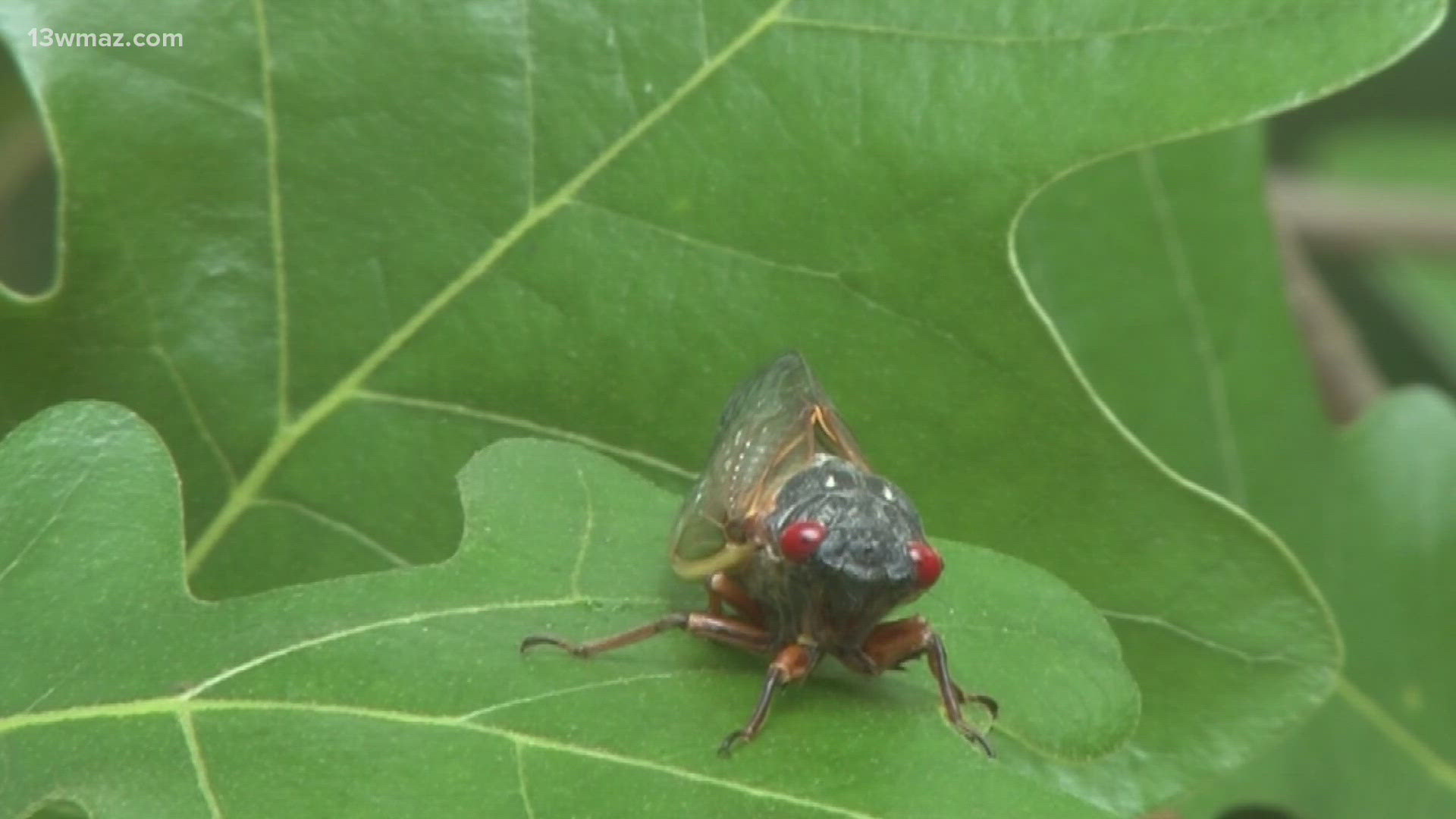MILLEDGEVILLE, Ga. — Like it or not, cicada season is in full swing in Central Georgia.
Associate professor of biology, Dr. Bruce Snyder, with Georgia College & State University said periodical cicadas emerge every 13 years. This year, they came about a month early.
Periodical cicadas are different from annual cicadas. Periodical cicadas are smaller, black, have red eyes and have a little bit of orange in their wings.
He's studying their effects on local ecosystems, which he said isn't an easy task since the opportunity only comes once every 13 years.
"We're talking about millions of cicadas coming out. Huge amounts of food for all kinds of organisms. We're also trying to figure out which organisms are actually eating the cicadas," Snyder said.
He said most other species, like spiders and birds, eat the periodical cicadas.
"Does that actually result in anything in the future or is it just that they have a big meal? I don't know. And that's another thing, it's that's very difficult to track those sorts of things," Snyder said.
What he does know is that all the buzzing sounds aren't going away until a few weeks from now, when he expects most of the periodical cicadas to die.
Snyder said all of that noise we hear from the cicadas is one big mating call.
"It's a whole courtship behavior where the male makes a noise, and the female clicks her wings. And they go back and forth, and that's how they determine okay this is a good, this is a good mate," Snyder said.
He said cicadas aren't very good fliers, so you might see a lot of them on the ground this month. It's also prime time to see cicada skeletons everywhere, since they have to lose that before they mate.
"That's why you're left with the, the exuviae, and they they push out their wings and they're adults," Snyder said.
And he said those adults are already hatching eggs. They're very small so you might not see them, but six weeks after the egg is laid, it'll hatch and the baby cicada will go back into the ground, where it'll stay until 2037.

